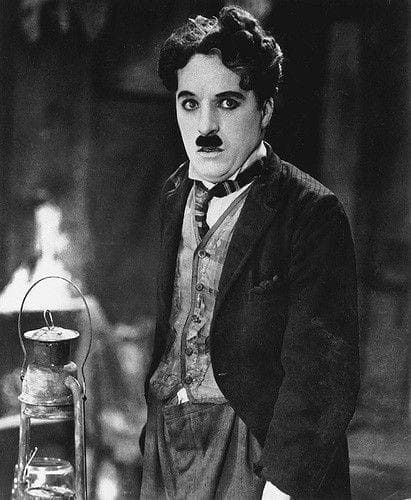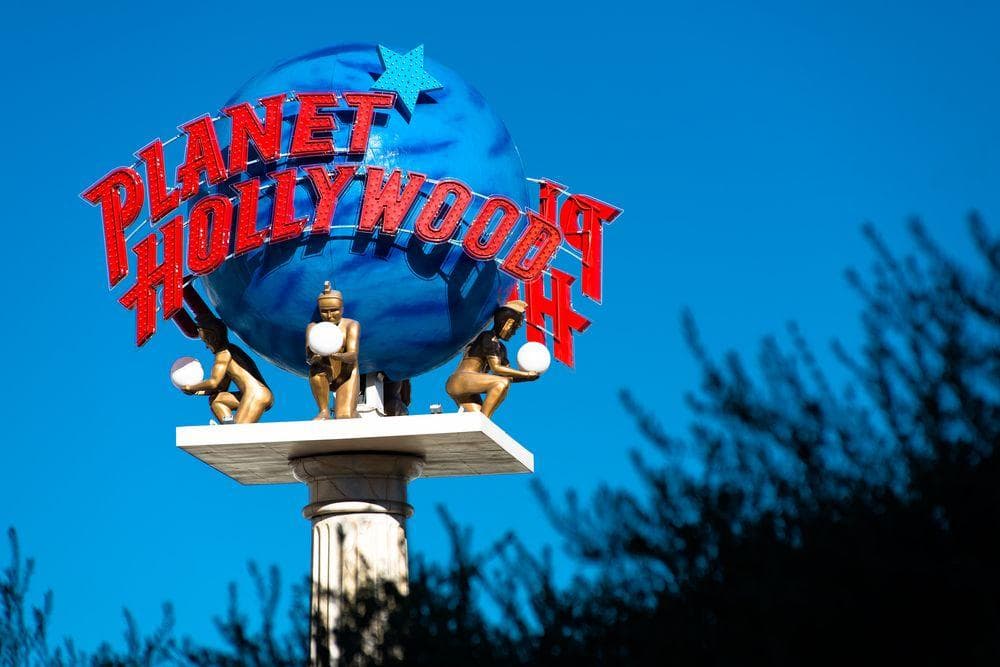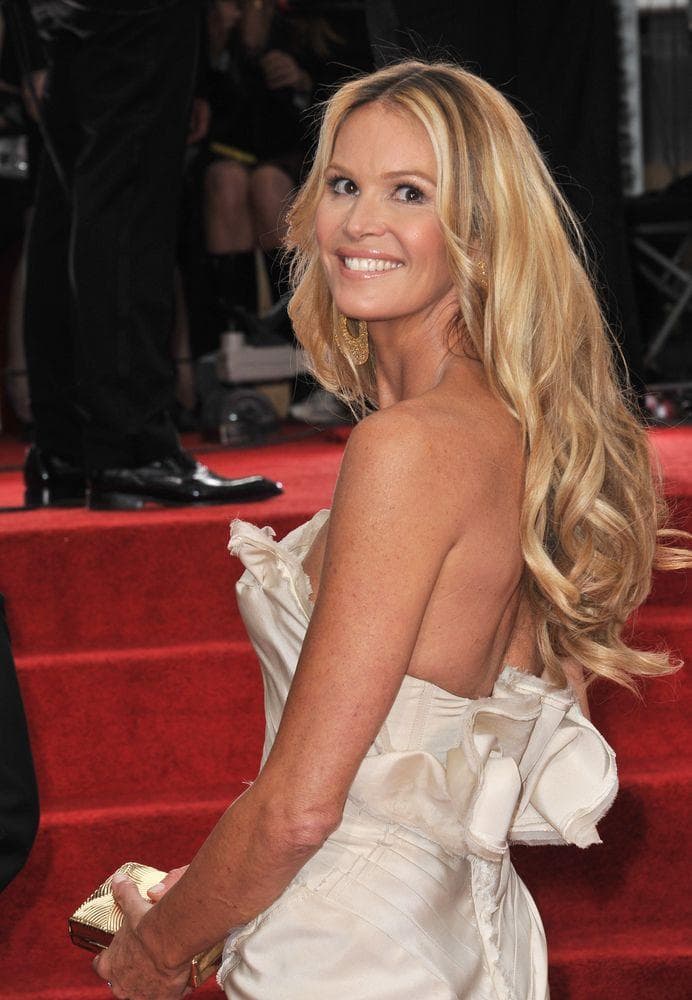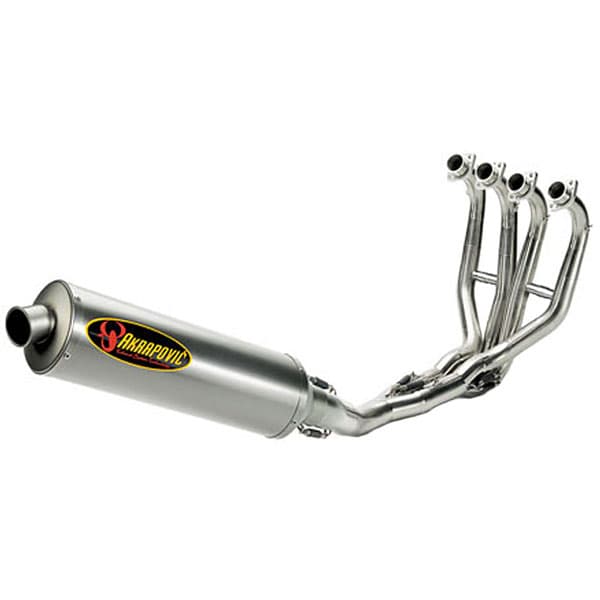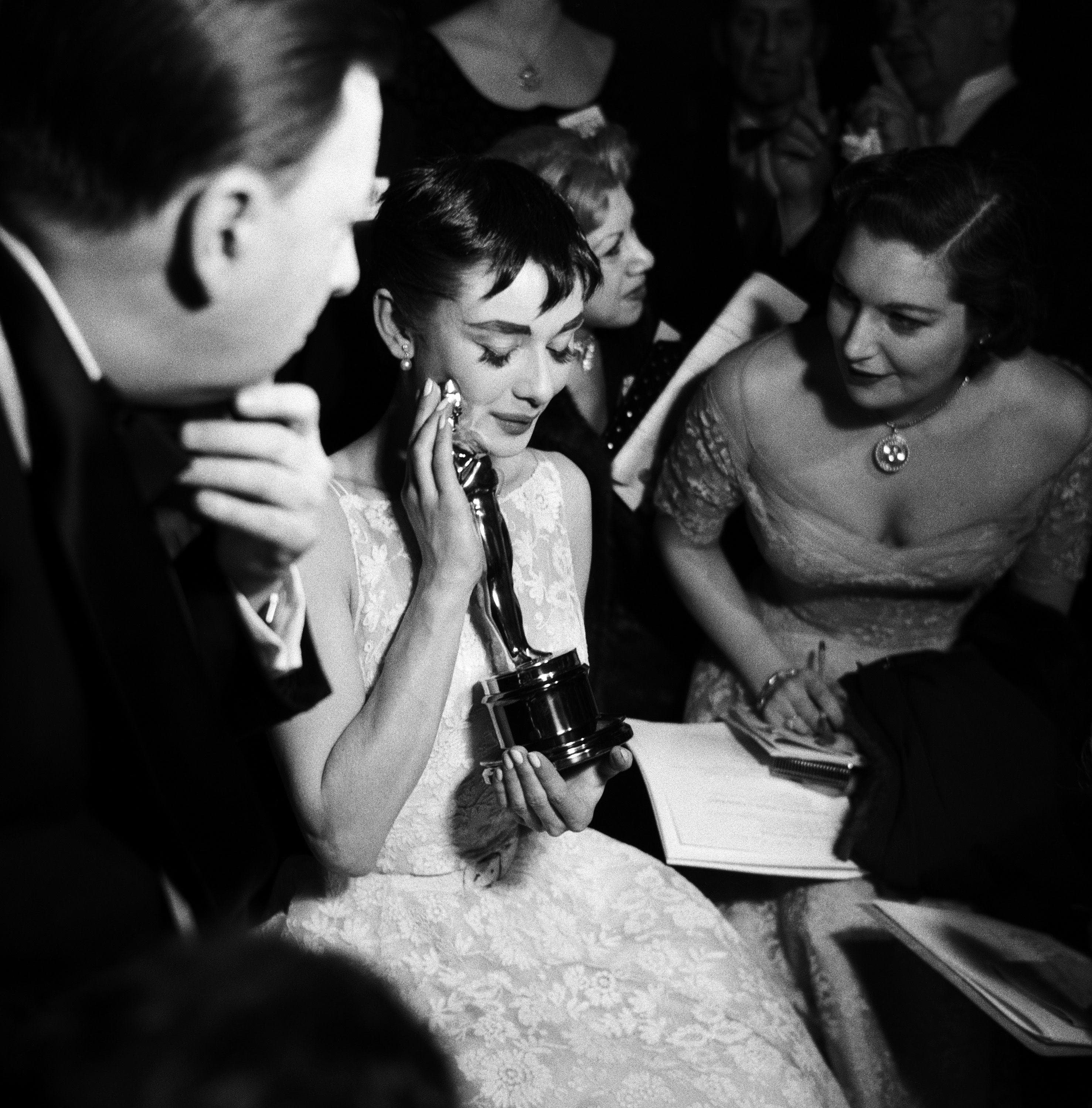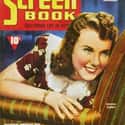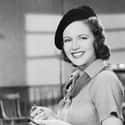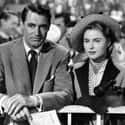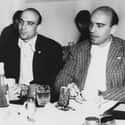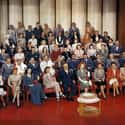-
(#4) War Was A Huge Boost For The Studio System
World War 1 exploded the American film industry. The public wanted stories and escape from their lives, yet also craved news from the front, which theatrical newsreels provided. Public demand led to technological advances, while Hollywood’s competition, European cinema, had a hard time getting much done with all the fighting going on.
Hollywood stars were a huge part of the war effort during WWII. Bette Davis headed up the Hollywood Canteen, where stars Marlene Dietrich, Rita Hayworth, Clark Gable, Merle Oberon, Judy Garland, Cary Grant, and Mickey Rooney entertained the troops. Clark Gable, Jimmy Stewart, Marlene Dietrich, and Leslie Howard even joined the armed forces, and Dietrich was awarded the Presidential Medal of Freedom.
-
(#7) Stars Had To Look Good (The Studio Took Care Of The Rest)
The average actor’s contract ran for seven years, on account of the De Havilland Law. Actors performed in whatever films the studio desired. Studios also loaned actors to other studios without consent or permission, sometimes as punishment for misbehavior on the actor's part. Actors of all types were under contract; lead, supporting, and extras. And all casting was typecasting.
Looks-over-talent was Hollywood's philosophy. An actor was groomed, chiseled, and molded to have a screen presence. They were given diction lessons and schooled on posture, and took horseback riding, fencing, and dance lessons. Appearance was hugely important. Weight maintenance was standard in contracts. Physical fitness was strictly enforced. What couldn’t be worked off was surgically altered. If a nose was too big, a chin too wide, plastic surgery was a given.
“A star is made, created; carefully and cold-bloodedly built up from nothing,” said Louis B. Mayer. “All I ever looked for was a face. If someone looked good to me, I'd have him tested. If a person looked good on film, if he photographed well, we could do the rest.”
-
(#6) The Talent Scout System Was Wide Ranging And Ravenous
Hollywood talent scouts searched for fresh talent on Broadway, vaudeville, and radio. They were on the lookout for a fresh face just about anywhere, including the street.
In 1936, someone (by some accounts The Hollywood Reporter founder William R. Wilkerson, by others a talent scout) spotted 15-year-old Julia Jean Mildred Frances Turner drinking a soda outside a shop in Hollywood after she ditched a typing class. She was approached, brought to Marx Brother Zeppo (who was an agent as well as an actor) once her parents approved of the situation, signed with him in 1937, and cast in They Won’t Forget.
Turner was an instant success, not because of her talent (she had no lines and was killed off pretty quickly), but because of her tight skirt and chest-hugging sweater. Turner, who chose Lana as her first name, was known as the “Sweater Girl.”
Turner said of her studio years
”It was all beauty and it was all power. Once you had it made, they protected you; they gave you stardom. The ones who kept forging ahead became higher and higher and brighter and brighter and they were stars. And they were treated like stars. We had the best."
-
(#18) Studio Power Was Weakend By Agents, Who Carved Up Talent Pools And Freed Creatives From Contracts
When the studio system began, agents swarmed Hollywood, imbedding themselves in every aspect of the business. While they tended to work with studios to cultivate an actor’s career, they were also considered the enemy. Agents had backgrounds in everything from advertising to real estate and banking, and knew how to dig in and fight.
Ultimately, agents won in the battle for control of their clients' careers. Leading stars had power and the studios had to share that power with the actor and agent. Agent-led negotiations on behalf of stars ended the era of contracts and created an environment in which most writers, directors, and actors worked freelance (writers lucky enough to get development deals moved from studio to studio based on who offered what).
Eventually, and somewhat ironically top agencies became their own versions of studios, packing projects with actors and directors, from scripts by clients.
-
(#12) Studio Writers Developed Modern American Screen Narrative And Churned Out Huge Amounts Of Material
A huge demand for scripts meant a need for writers, who streamed into Tinsel Town from all other the country and world, and from all walks of life. Hollywood attracted novelists such as William Faulkner, F. Scott Fitzgerald, and Raymond Chandler. But the system relied on writers who could churn out content on a daily basis, not literary powerhouses who demanded a huge payday. The screenwriters who did well generated good material quickly. These writers also developed the basic screenwriting precepts still used today.
Sequences, for instance. Sequences are the building blocks of scripts as per a number of philosophical approaches to screenwriting. Writing a script as a series of sequences was developed during the studio era in part because screenwriters wrote interconnected scenes to the length of a single reel of film, which ran about 10 minutes. Scripts from the studio era also included technical direction and camera blocking, an understanding of which helped screenwriters to more easily transition to directing.
Pat McGilligan interviewed 15 of the top screenwriters from the studio era for his book Backstory: Interviews With Screenwriters of Hollywood's Golden Age. Julius J. Epstein (Fanny, Casablanca) recounted just how quickly he was thrown into the mix after arriving in Los Angeles from New York.
"I came out on Friday and landed in the railroad station at 10 o'clock at night. Oct. 14, 1933. Twelve o'clock that night I was ghostwriting for two desperate people who shall remain nameless, because they had to take some stuff in (to Warner Bros.) on Monday and they had nothing to turn in. Sunday, one of them took me downtown to the Paramount Theatre--I think it was College Humor (1933) with Bing Crosby and Mary Carlisle. He said, 'That's a fade-out. That's a dissolve. That's an iris-down! That was my education in screenwriting. I think it's all you need.”
Epstein learned how to write scripts by reading scripts. He also wrote an original story every night.
“In those days you didn't have to write a screenplay to sell, you could do 10 or 20 pages of an idea. In about nine months one sold to Warners. I came in October and sold something in August. After a week Warners put me on a seven-year contract, and I was there under two seven-year contracts."
His twin, Philip, was also a writer, and the two wrote Casablanca together. They were notorious pranksters - when the Epsteins were reported to the House Un-American Activities Committee in 1952, they filled out paperwork which asked whether they belonged to a subversive organization, in response to which they wrote, “Yes. Warner Brothers.”
-
(#8) Studios Owned Their Stars And Controlled Their Personal Lives
The studio controlled every aspect of a star’s life. From how they spent their private time to who they dated, married, and pretty much every other aspects of their personal lives. If an actor had an affair, got pregnant, had a drug or alcohol problem, or a child out of wedlock, the studio made it a high priority to deal with it and keep that knowledge from the public.
If an actor was gay, that knowledge was closely guarded. Actors stayed in the closet and were regularly forced into cover marriages. Crimes and misdeeds were covered up. The studios worked with law enforcement and the press to keep things under wraps.
New Random Displays Display All By Ranking
About This Tool
It is not an exaggeration to say that the studio system has created Hollywood’s glory. The old Hollywood studio system is a production model for large companies in American movie history to produce movies. The filmmaker takes the lead and emphasizes the role of the movie stars. The studio system has a decisive influence on the future development of Hollywood.
You must watch lots of Hollywood movies, but most people don't know the facts about how the old Hollywood studio system worked, our generator will help you to get more details, and it has more interesting content, you could search for other things with the tool.
Our data comes from Ranker, If you want to participate in the ranking of items displayed on this page, please click here.

